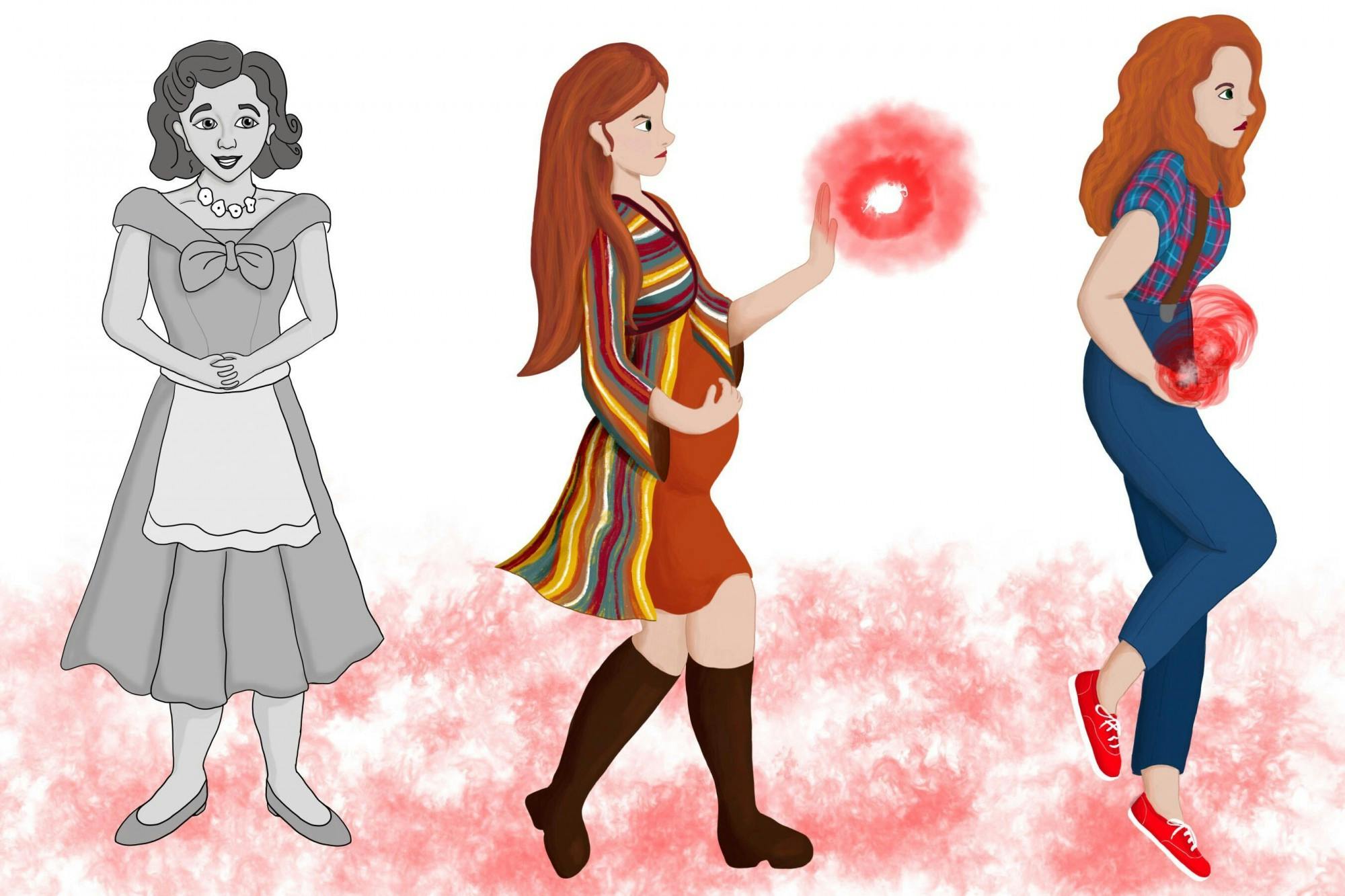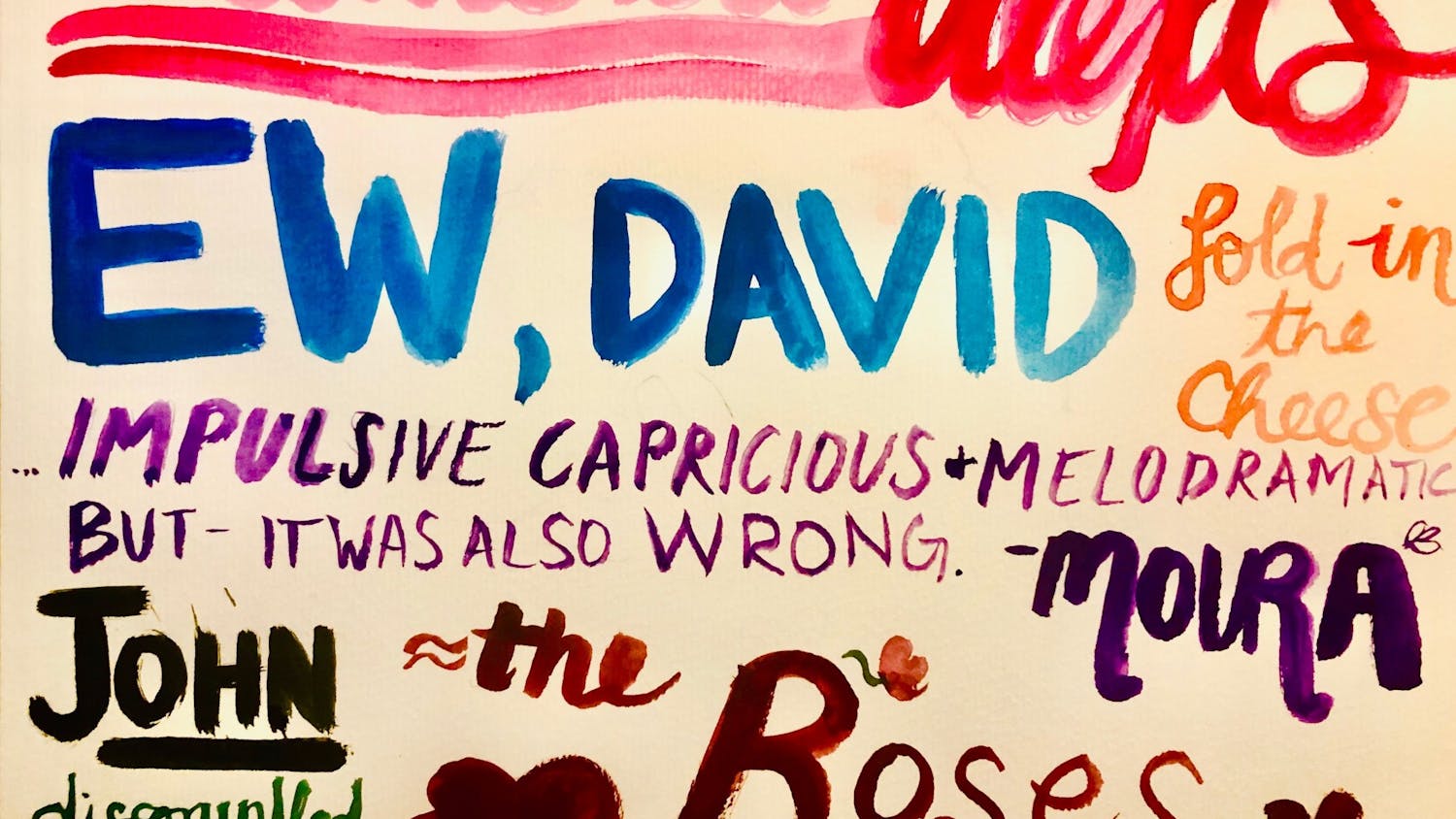Martin Scorsese once said that Marvel movies were more akin to theme parks than cinema — a claim that drew the ire of many passionate nerds who rushed to the defense of the $22 billion grossing franchise. His rationale was that the films were predictable and didn’t convey the unique emotional and psychological experiences of its characters in the way that he believes true cinema does.
Now, as a passionate nerd myself, I don’t necessarily disagree with Scorsese on this matter. I do think that a large portion of the Marvel Cinematic Universe doesn’t exactly have much in common with the exemplars of the medium, but I also happen to think that theme parks are really fun and that there’s nothing wrong with enjoying them. Entertainment value is subjective, and my longstanding belief on the topic is that while big, dumb franchise movies and a film out of the Criterion Collection may offer very different experiences, both are worthwhile in their own way.
“WandaVision,” the MCU’s first foray into both the mini-series and streaming formats, might also be the first MCU piece that Scorsese would come around for — and not just because it’s a show and not a movie. Unlike the bombastic and sometimes substance-light two-hour romps that comprise the majority of MCU films, the show’s mini-series format allows it to really spend time with its characters, which lets the writers weave a powerfully resonating tale of that aspect of love we revile oh-so-much: grief.
If Scorsese can stomach the superpowered trappings that the show comes packaged in, he would find that “WandaVision” is an original, emotionally potent and gripping melodrama that, while not without its flaws, represents a welcome deviation from the MCU’s standard fare.
“WandaVision” stars Elizabeth Olsen and Paul Bettany as the titular characters — the superheroes Wanda Maximoff and Vision. The nine-part mini-series revolves around Wanda, wracked with sorrow from a lifetime of losing loved ones, using her abilities to alter reality to bring back her dead lover Vision. In doing so, Wanda inadvertently traps the town of Westview, New Jersey in a “hex,” living out her sitcom-style suburban life with Vision while simultaneously forcing Westview’s citizens to play supporting roles in the facade. This inevitably draws the attention of government organizations who seek to free Westview from a deranged Wanda who’s fiercely protective of her idyllic, illusory life.
For in-universe reasons gradually revealed to the viewer, the first seven episodes of “WandaVision” are each inspired by a different era of sitcom, starting from the 1950s and going all the way up to the 2010s. This is by far one of the most creative and bold things the MCU has done, and it’s the primary reason why the show is so entertaining. Showrunner Jac Schaeffer, aided by the excellent acting talent of both Olsen and Bettany, executes it perfectly.
The level of detail in the recreation of each era, as well as the homages to series like “The Dick Van Dyke Show,” “The Brady Bunch,” “Malcolm in the Middle” and “Modern Family” make for a refreshingly creative backdrop for the larger plot. The writers’ passion for television as a medium shines through, and for the MCU’s first big TV debut, I think this crazy love letter to television was a smart way to start it off.
The show revels in its writing and acting. It manages to be intelligently comedic when parodying other shows, while also foreboding and even disturbing when the illusion frays and we get a glimpse of the terrifying reality behind the sitcom. Unlike many MCU movies, “WandaVision” manages to effectively switch from light-hearted to serious without it feeling cheap or undeserved. This is due in large part to the performances of Olsen and Bettany. Olsen nails her multifaceted role as she effortlessly switches between sitcom wives and the bereaved, disturbed Wanda. The same goes for Bettany, who does an amazing job as both a devoted lover, goofy sitcom dad and “synthezoid” on a quest to understand the nature of his false reality.
On top of their great independent performances, the chemistry between the two is so electric that I had a hard time believing that Bettany’s been married to Jennifer Connelly since 2003. While Schaeffer takes her time to set up the slow-burning mystery, the pair carry the show on their backs, and they do so triumphantly.
At the end of the day, WandaVision does fall into a few of the “predictable” — as Scorsese would say — pitfalls as much of the rest of the MCU does. For a show that starts out so fresh and creative, I felt that it was hamstrung by its genre into unnecessarily including a villain. While I didn’t hate it, I can’t say that I wasn’t a little disappointed that the writers felt a need to preserve Wanda’s good-guy reputation instead of exploring a more dynamic characterization of her.
It would have been leagues more interesting if the show stuck to its guns and dived deeper into the bad things that good people are willing to do when they’ve lost everything. What we got was still perfectly serviceable, but I’d have liked the writing toward the end to have lived up to the promise it demonstrated earlier on in the show’s run. Once the show does away with its innovative sitcom format after episode seven, we are left with something decidedly more bland.
Despite all that, the show is still a fun ride. It’s more creative and original than most content in the genre and emotional enough to jerk a tear or two. Whether it’s art or just another theme park ride — I’m not sure, but it’s an enthralling story either way.
If you’re like Scorsese and don’t care much for superhero movies, I urge you to give this show a try, if for no other purpose than to serve as a litmus test for how much your aversion to superhero content outweighs your attraction to a pretty good story. If you’re everyone else, check out “WandaVision” when you have a chance. You’ll be pleasantly surprised at what the MCU is capable of putting out when not constrained by a film’s runtime or a box-office target.
Rating: ★★★1/2




